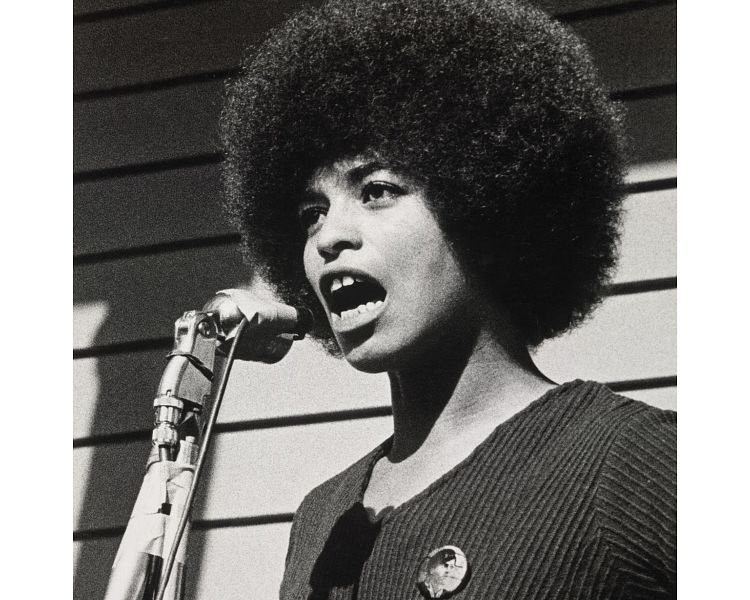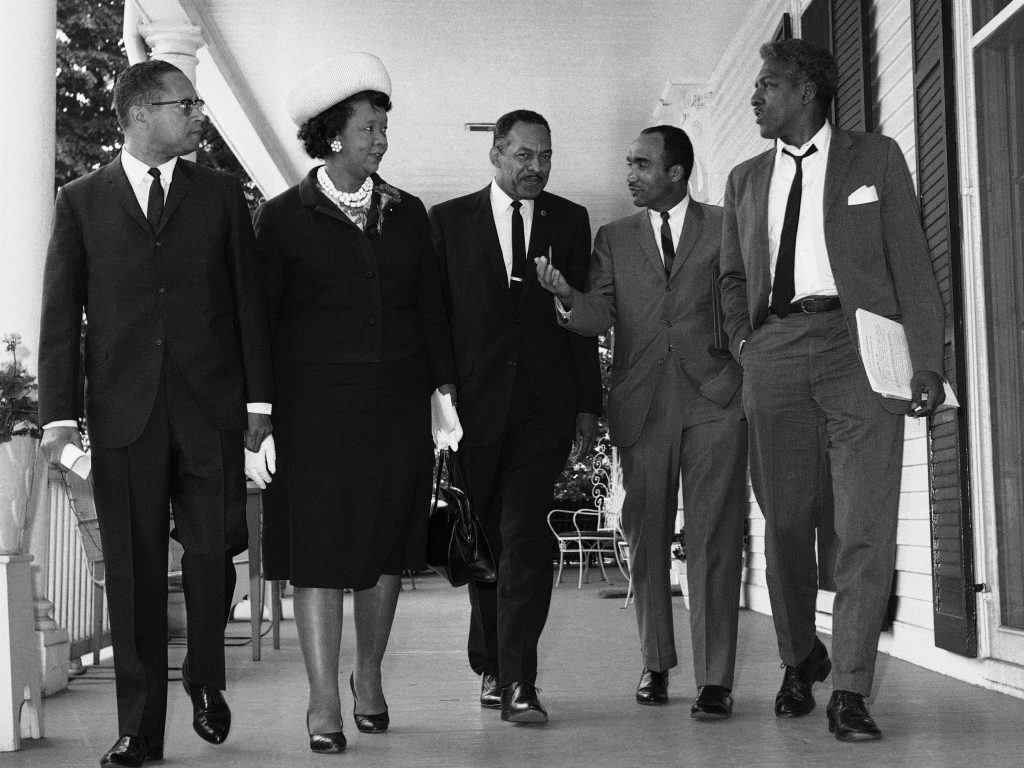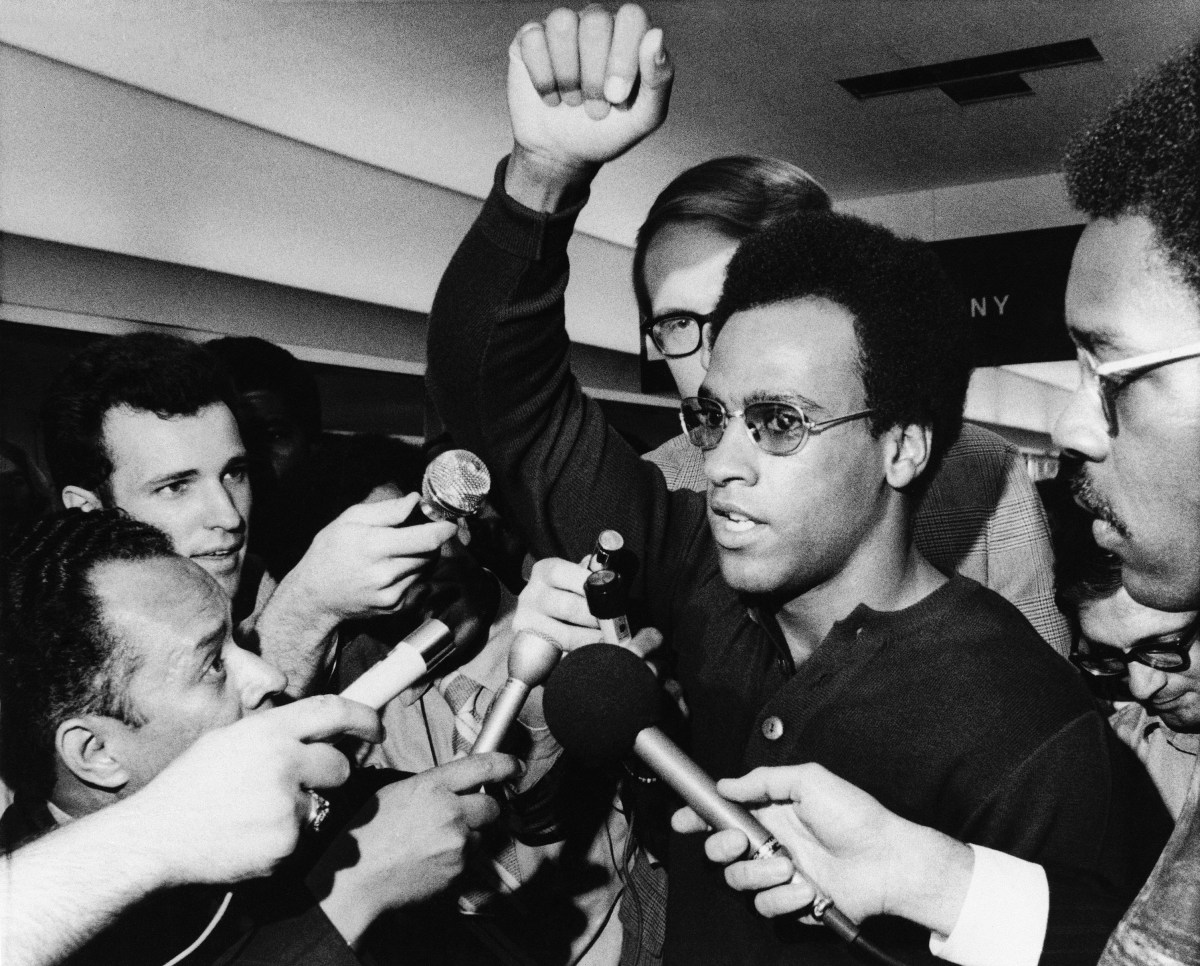




In wake of the brutal murder of yet another black life in police custody, millions of people in the United States have taken to the streets in protest. The world in turn, is marching in solidarity with those members of the Black Lives Matter (BLM) movement. Despite the pandemic, people from across the globe are standing in solidarity to protest the institutionalised racism of western culture. The imagery flooding our media, has been warped to portray these protests as violent and fanatical acts. As if what is occurring with the BLM movement is a radical phenomenon unlike any other throughout history. This is clearly untrue. These events are not new tactics implemented by extremists, they are peaceful protests, developed, and refined by past revolutionaries.
This time around, we’re seeing thousands of black voices finally receiving the support to speak their truths. This support would not have been possible without the work of the black revolutionaries who fought before us. They endured unimaginable violence, hardship and resistance in their efforts to implement equality and justice for black life. The world is being forced to realise that what is happening now, has needed to happen for decades. This work was and remains a necessary – albeit ugly at times – part in the process of affecting real change. We are reminded that change does not and should not come palatable to everybody.

A photograph of Miss Ella Baker, NAACP Hatfield representative, sat behind a desk with paperwork, September 18, 1941. (Photo by Afro American Newspapers/Gado/Getty Images)
Ella Baker 1903 – 1986
Ella Baker was a visionary from a young age, developing an understanding of social injustice through her grandmother’s stories of her experiences in slavery. Baker went on to become one of the most influential voices of the Civil Rights Movement, working with noted activists such as Martin Luther King Jr, Thurgood Marshall and A. Phillip Randolph. She is said to have been “one of the most important American leaders of the twentieth century and perhaps the most influential woman in the Civil Rights Movement.” Her early years were based in New York, where she worked in education specialising in African and labor history, enabling her to then mentor other emerging individuals within the movement, such as Rosa Parks and Bob Moses. As the primary advisor for the Student Nonviolent Coordinating Committee (SNCC) Baker promoted grassroots organisation whilst supporting and educating the oppressed to advocate for themselves. She was publicly against charismatic leadership tactics, believing in the authenticity of participatory democracy. Being a feminist as well as an activist, Baker openly questioned the male hierarchy of the civil rights movement, criticising its structural modelling of the Black Church. These critiques caused controversy at the time, however with further discussion and research, they proved valid. She continued fighting well into her later years, campaigning for the release of Angela Davis, who had been arrested for being a Communist. Ella Baker remained an activist and inspiration until her death in 1986, on the day of her 83rd birthday. The documentary Fundi: The Story of Ella Baker (1981) directed by Joanne Grant, follows Baker and her life work. See here for further reading materials.

The civil rights leader Bayard Rustin in New York City in 1969. Credit A. Camerano/Associated Press
Bayard Rustin 1912 – 1987
Bayard Rustin’s activism was quite different from the radical, sometimes violent norms during the Civil Rights Movement. He was deemed more of a pacifist, supporting nonviolence and peaceful approaches to social change. Early in his career he was mainly a behind-the-scenes advisor, due to his sexuality; however later on in the 1980’s he became an inspiration for the Gay Rights Movement. He is quoted stating “it was an absolute necessity for me to declare homosexuality, because if I didn’t I was a part of the prejudice.” Rustin was also a huge advocate for worker’s rights, specifically black workers, which prompted him to introduce exclusively black unions. Both Rustin and Phillip Randolph, formed the American Federation of Labor and Congress of Industrial Organisations (AFL-CIO) Later in life, in response to the Vietnam War, his ideologies drew closer to neo-conservatism, which in turn gained him a posthumous Presidential Medal of Freedom by Barack Obama. See here for further reading materials.

Left to right, Morris Dosewell, American Labor Council; Dorothy Height, National Committee Negro Women; Alexander Allen, Urban League; Basil Paterson, NAACP and Bayard Rustin, director of the Philips Randolph Institute
Dorothy Height 1912 – 2010
One of the three women whom formed the National Women’s Political Caucus (NWPC) Dorothy Height was an adamant feminist as well as a civil rights activist. During her adolescent years she became extremely socially and politically active, participating in anti lynching campaigns throughout Pennsylvania. She had amazing public speaking skills, winning various competitions and awards for her expertise. Her position as the the president for the National Council for Negro Women (NCNW) for over forty years proved her devotion to black women’s rights within America. Height predominantly campaigned for the issues facing black women, specifically those enduring unemployment, illiteracy and voting rights. Throughout her career she was never fully recognised for her role within the ‘Big Six’ of the Civil Rights Movement, this was due to the sexism of the media during that time. Height’s influence over American leaders was evident in various reforms that took place during the 60’s and 70’s. She was awarded several medals and honours for all of her work, including the Presidential Medal for Freedom. A 2012 documentary entitled, Whiskey and Apple Pie: A Journey Across America features interviews with Height and other activists of the time. See here for further readings including her memoir Open Wide the Freedom Gates: A Memoir.

Hosea Williams (center) and some of his “poor people,” appear at a news conference in July 1969.
Photo: Bettmann Archive/Getty Images
Hosea Williams 1926 – 2000
An ordained minister and one of Martin Luther King Jr.’s trusted colleagues, Hosea Williams was renowned for his ability to bring together the masses in peaceful protest for social change. Growing up in Attapulgus Georgia, Williams was raised by his grandparents along with his sister Theresa. He served with the United States Army during World War II, where he became a sole survivor of a Nazi bombing which gained him the Purple Heart medal. He earned a Masters degree in chemistry before going on to become a minister. He stated that after returning from the war he was attacked by white Americans, forcing him to “realize why God, time after time, had taken me to death’s door, then spared my life…to be a general in the war for human rights and personal dignity.” Williams went on to become a member of the Southern Christian Leadership Conference (SCLC) as well as a member for the NAACP, before being elected into the senate of Georgia where he served as a democrat until 1984. Throughout his political career he sat on various committees fighting for civil rights, minimum wage, federal aid to education, urban renewal, and indigent medical care. Hosea Williams died of cancer in November 2000, he now rests in the Lincoln Cemetery. Ava DuVernay’s film Selma (2014) illustrates Hosea in the march from Selma to Montgomery, Alabama in 1965, campaigned by Martin Luther King to secure equal voting rights.

Huey P. Newton, Black Panther party minister of defense, raises his arm as he is literally surrounded by newsmen on Friday, Sept. 4, 1970 in Philadelphia upon his arrival for a three-day convention. Man at right is not identified. (AP Photo/Rusty Kennedy)
Dr. Huey P Newton 1942 – 1989
One of the founders of the Black Panther Party, Dr. Huey P. Newton was a Marxist-Leninist revolutionary who created the Ten-Point program on how the black community could achieve liberation. Newton grew up in Louisiana during World War II, in one of the heaviest lynched black communities of the south. His family relocated to California where Newton attended university after teaching himself how to read. Through his education he became a member of the African American Association (AAA) through the Phi Beta Sigma fraternity, where he eventually earned a PhD in social philosophy. During these years Newton, along with Bobby Seale, developed the Black Panther Party (BPP) focusing on the concepts of using violence or the threat of violence to instigate the needed social change. He defined himself as a ‘revolutionary humanist’ diverting his efforts on forming community support programs focused on medical clinics, HIV support groups, sickle cell anaemia tests, prison busing for families of inmates, legal advice seminars, and others. The BPP eventually disbanded in 1982 due to embezzlement charges against him. Dr. Huey P. Newton was charged with the death of a police officer John Frey, where after several hung juries and four trials, the charges were dismissed. In August 1989 Newton was shot and murdered by Tyrone Robinson, a member of the Black Guerilla Family. He is remembered for his compassionate work in fighting for black children & families whilst embracing the realities of fighting for the Black Power Movement. See here for further readings on Newton and his memoir Revolutionary Suicide.

Angela Davis 1944 – Present
One of the most famous black feminists in recent years, Angela Davis is a ground breaking author, philosopher and political activist. Born in Alabama, Davis studied in Germany, before returning to the United States to pursue her beliefs in leftist politics, soon becoming a member of the Communist Party. Her influence in the campaign against the Vietnam war and her involvement in the BPP, gained Davis an inspiring voice. During her time in jail she continued her academic work, focusing on abolishing prisons and advocating for social reform through community led education. Her power within far leftist politics was evident when she ran for Vice President twice, representing the Communist Party, although not winning the seat. Davis was also a supporter of various organisations throughout Cuba, The Soviet Union, East Germany and even the People’s Temple cult, in their anti-segregation and socialist ideals. Her career spanned years of political and social activism, focusing on Marxist-Leninist ideologies, working to deconstruct the societal status quo. Also an openly gay black woman, Angela Davis continues to fight for civil rights through her academic pursuits and political ideologies. Some films that feature her life’s work and events of that era are; Free Angela and all Political Prisoners (2012), The Black Power Mixtape (2011) and Angela Davis: Portrait of a Revolutionary (1972). See here for further readings and resources by Davis.

Assata Shakur 1947 – Present
A prison escapee now living in asylum in Cuba, Assata Shakur is a radical revolutionary who demonstrated extreme bravery in the fight against social injustice. She took on this name due to it’s meaning of ‘she who struggles’ rather than her birth name which she deemed a slave name. Shakur was briefly a member of the BPP before becoming more involved the Black Liberation Army (BLA) which was an underground, significantly more violent, group of Black Panthers. She was the leader of the BPP in Harlem, where she coordinated the free breakfast program for children as well as several other community education programs. Her radical actions against the United States government included; planting bombs, murdering drug dealers and police, and holding up banks. These tactics varied from the more peaceful protests of the 60’s, signifying the desperate need for social reform. Shakur was charged and imprisoned on Rikers Island for the murder of a police officer, where she spent twenty-one months in solitary confinement. She gave birth to her daughter during her imprisonment, where she was brutally assaulted and mistreated by prison guards during various transfers. In 1979 Shakur escaped with the help of the BLA, spending years as a fugitive wanted by the New York police. Eventually she found asylum in Cuba, where she continues to live, despite Trump’s demands for her return. Assata Shakur is an inspiring force in the fight against the social and racial injustices facing black people today. See here for her “intensely personal and political” autobiography focusing on her life and experiences fighting for social justice.
For numerous other free black texts by black authors see here
